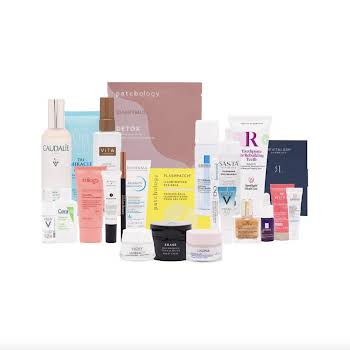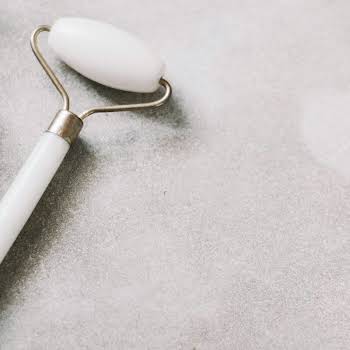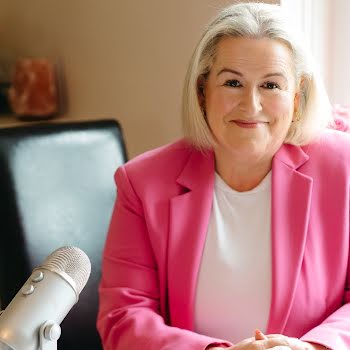
Sponsored
Men’s Health 101: How can we best take care of the men in our lives?
Sponsored By

By Victoria Stokes
25th Nov 2023
25th Nov 2023
Sponsored By

We’ve teamed up with Meaghers Pharmacy and picked the brains of two health experts to help you support the cherished men in your life.
From receding hairlines to mental health and fertility issues, it’s not always easy to know how best to support the men in our lives.
Especially the men who are not only less likely to speak up when something’s wrong but more likely to avoid a trip to the doctor’s office when it’s needed.
An IMAGE reader survey in 2023 found that 98% of IMAGE readers feel somewhat uncomfortable discussing men’s health issues with the men in their lives.
We reckon it’s time that changed, so we’ve teamed up with Meaghers Pharmacy and picked the brains of two health experts to arm you with the men’s health knowledge you need to better support the cherished men in your life.
20s
Ah, your twenties. Typically a time of self-discovery for women, and the menfolk are no different. This era can signal binge drinking, sexual promiscuity, and mental health issues for some men.
Some men often feel uncomfortable speaking up when it comes to the latter. Unlike the women in your life, men are less likely to let you know when their mental health is struggling.
GP and Founder of Say GP Dr Semiya Aziz says alarmingly 40% of men never discuss their mental health problems, but they may be more likely to open up to you – a woman they know and trust.
If you suspect a man in your life is keeping a lid on a mental health problem, Dr Semiya says there’s lots you can do to support them.
“Trust is a key element when it comes to discussing mental health and it’s important to set aside a time without any distractions to give this person space to talk and be listened to,” she says.
If you find it hard to get the conversation going, Dr Semiya recommends using open-ended questions to get them to talk.
When we care about someone deeply and you see them hurting it’s normal that you want to make all their problems go away, but Semiya says it’s important to resist the urge to fix the situation.
Instead, she recommends exploring support options together and encouraging them to see a healthcare professional.
A devil-may-care attitude when it comes to sex and alcohol is another men’s health hazard to be mindful of.
Worried a man in your life – be it your partner, brother, or other – is drinking a little bit too much? Dr Semiya says encouraging them to set a limit before a night out and to substitute every other alcoholic drink for a non-alcoholic one is key in lowering their consumption.
One of the most effective tips though, could be encouraging them to find an alternative hobby, ideally one you can do together that doesn’t involve alcohol.
As for sexual health? Dr Semiya says it’s a good idea for anyone who is sexually active to undergo a sexual health screening – especially if they have multiple sexual partners.
And of course, practising safe sex is key. A little reminder – however cringy it may feel – that a condom is the best way to protect against both unwanted pregnancies and STIs could go a long way.
Skin can be another area of concern for men at this age. Skin Accumax™ addresses all levels of problem skin. It works from the inside and nourishes all skin layers, feeding every cell in the body to help support all areas of the skin such as the face, chest, back and shoulders.

30s
By his early 30s a man’s party years may be behind him, and his wild ways may have been replaced by an unwelcome development: a receding hairline.
“Men, as they get older, are more prone to hair loss due to a byproduct of testosterone called dihydrotestosterone. Genetics and old age are factors behind hair loss too,” explains Dr. Hamdan Abdullah Hamed, board-certified dermatologist and co-founder of Power Your Curls.
Male hair loss may be common – around 3 in 10 men experience it at age 30 and up to 80% will have some hair loss by age 70 – but it can still come with a stigma.

Hair loss can throw up lots of complicated emotions for the men in our lives, like embarrassment, shame, and loss of masculinity to name a few, so be careful when it comes to poking fun or making light.
As far as treatments go, Dr Hamdan says DHT-blocking supplements or medicines such as minoxidil and finasteride can help, while regular scalp massages promote hair growth by stimulating the hair follicles.
It’s a good idea to remind the men in your life that they shouldn’t neglect the basics. Dr Hamdan says resting, exercising, eating a balanced and healthy diet, and avoiding bad habits such as smoking, drugs, and alcohol can go a long way to minimising hair loss.
Viviscal is the world’s leading hair growth supplement; this supplement contains AminoMar C™ – a rich marine protein complex to aid the growth and repair of hair cells, as well as zinc, biotin, iron and more to help support the growth of healthy hair.

This decade doesn’t just signal receding hairlines, but a change in priorities. Like women, it’s a time when many men think about starting a family.
If you’re in this age bracket, and trying to conceive, you may have gone to great lengths to prime your body for pregnancy – but your other half can improve your chances of conception too.
Dr Semiya says men can improve their fertility by following all the usual good health advice – like quitting smoking, limiting alcohol intake, eating well, and exercising regularly.
“Ideally, their genitals should be kept cool, by wearing loose clothing and underwear too,” she adds. “Studies indicate that tight clothing and higher temperatures around the genitals impact on the quality of sperm.”
Taking a supplement that supports sperm production and health may help as well.
The Big C is a topic few people want to discuss but it should certainly be a talking point for men in their 30s.
“Testicular cancer is often found in younger males under the age of 40 and there are various risk factors that may predispose a man to this type of cancer,” says Dr Semiya.
This includes having undescended testes at birth, congenital problems, a family history and infertility.
Signs and symptoms of testicular cancer to look out for include pain in the testicular area, a swelling in the scrotum, a lump felt on the testes and back pain.
The best way to reduce the risk? Regularly encourage the men in your life to check their balls for any lumps. Dr Semiya says doing this after a warm shower can make the examination easier.
40s and beyond
This age bracket usually heralds the beginning of menopause for women. For men, it’s a time to become more aware of health concerns like heart disease, sexual dysfunction and diabetes.
Let’s delve into the heart stuff first. Men are far more likely to suffer from cardiovascular disease than women.
Dr Semiya says this is because men tend to have an increased propensity to hypertension, diabetes, high cholesterol, and making poor lifestyle choices – think smoking, drinking excessively and eating a poor diet. Stress can be a contributing factor too.
Some of these habits can contribute to the development of diabetes as well. “As men and women get older, they often tend to develop more fat, not only around their organs better known as visceral fat, but also around the abdomen,” Dr Semiya explains.
“Increasing fat around the belly predisposes an individual to Type 2 Diabetes. This, along with being overweight, living a sedentary life, adopting an unhealthy diet, and having a family history puts men at greater risk of developing Type 2 Diabetes later in life,” she explains.
Another health concern that could be having a knock-on effect on your peace of mind is sexual dysfunction. It’s estimated that around 50-55% of men aged between 40 and 70 suffer from erectile dysfunction.
It can be a consequence of a condition called atherosclerosis, which causes a hardening of the blood vessels, as well as declining levels of testosterone.
“Diabetes and certain medications such as antidepressants may contribute to sexual dysfunction too,” Dr Semiya points out.
It might surprise you to learn that, to an extent, all these health concerns – heart disease, diabetes, and sexual dysfunction – are related. The best way to manage and get ahead of them is to make better lifestyle choices.
“What we have to be mindful of is that our genetics control 20% of our health yet 80% is governed by lifestyle and the environment that we live in,” Dr Semiya notes.
“While we cannot predict who will develop a particular condition, we are able to take some control and optimise our lifestyle choices, reducing the risk of developing a medical condition,” she says.
According to the Men’s Health Forum, men in this age bracket are less likely to engage in physical activity than women, so first off, it’s a good idea to get them out and get them moving.
Be sure they couple that with a balanced diet, full of vitamins A, B, C, and D, and folic acid in particular. Dr Semiya says eating the rainbow is key – so the more (naturally!) colourful the food on their plates the better.
Active Iron has created this first male-specific Iron with B-Complex Plus supplement, with clinically proven better absorption of iron sulfate. The Iron Sulfate and Vitamins B1, B2, B3, B5, B6 and B12 help boost energy, whilst Vitamin B5 also contributes to mental performance. Active Iron & B Complex Plus also helps enhance muscle function and immunity, so win, win.

Next up? It’s stress management, something which can be particularly difficult for men of this age group to master. It’s not all mindfulness and breathing techniques though – although these can prove helpful.
Some more “man-friendly” ways of managing stress can include developing a good sleep routine of 7-8 hours a night, limiting destructive habits like smoking and drinking, and engaging in social activities.
Dr Semiya says if the men in your life start to adopt all of these measures in their daily lives, they’ll improve their general well-being and reduce their risk of long-term disease. Hopefully, in doing so, they’ll put your mind at ease too.
Visit Meaghers.ie for more.
























